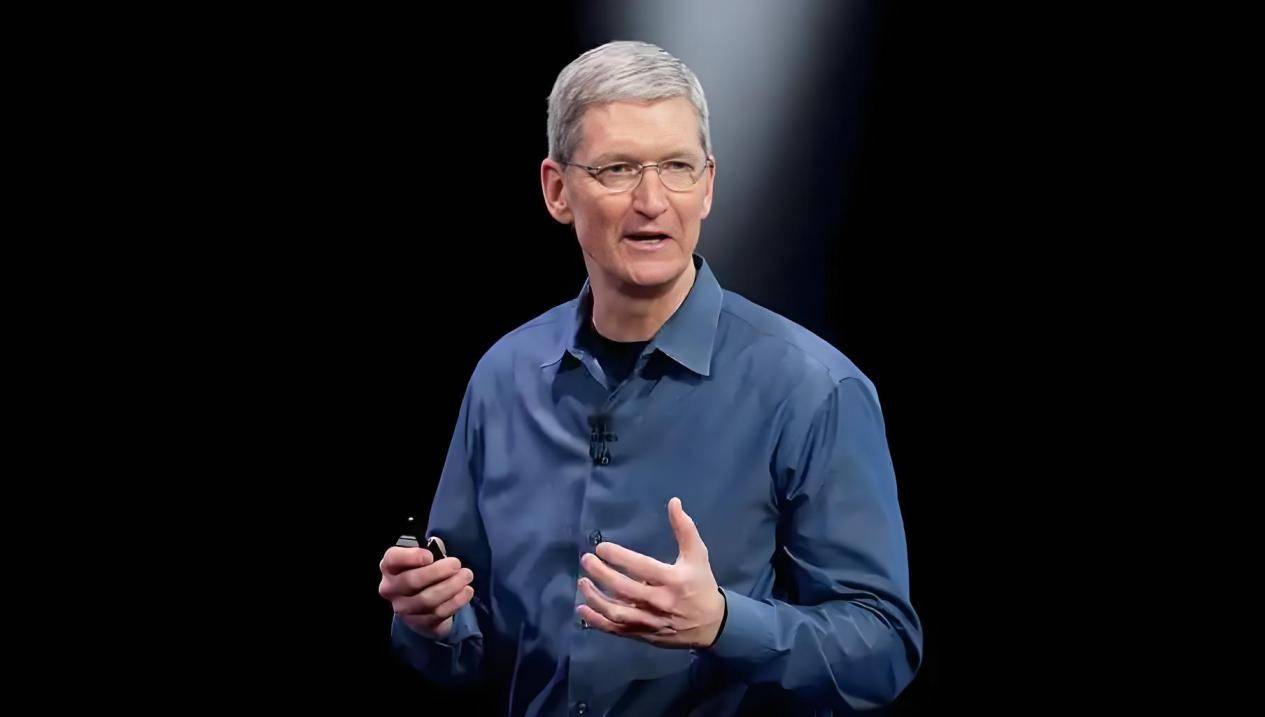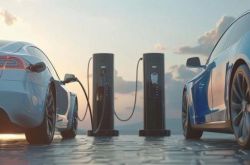Apple's AI Lag: Premature to Sing the Blues
![]() 07/01 2025
07/01 2025
![]() 618
618
Apple is still reeling from the "ridicule" it faced at WWDC25 when it suffered another blow.
According to Reuters, on the 21st, Apple was collectively sued by shareholders for allegedly underestimating the time required to integrate advanced generative AI into its voice assistant Siri. This alleged misrepresentation impacted iPhone sales and caused share prices to decline, constituting securities fraud. In this lawsuit, Tim Cook, Chief Financial Officer Luca Maestri, and former Chief Financial Officer Kevin P. O'Brien were all named as defendants.
Evidently, Apple's stake in the AI field is no longer captivating users or shareholders, leading to a steady decline in its share prices in the capital market and the weakest performance among the "Big Seven" tech stocks. In the broader tech industry, these repeated setbacks have solidified perceptions of Apple falling behind in the AI technology wave, fostering a wave of pessimism towards the company.
But will AI truly mark the turning point for Apple's decline? In the current internet landscape, after AI became the strategic focus or transformation direction for nearly all companies, it is increasingly seen as the sole decisive factor for future competition. Those who lead will "survive," while those who lag will "perish." However, this notion is somewhat idealistic for both Apple and other industry titans.
AI Phones: Beyond the Concept
In stark contrast to Apple's sluggishness, Chinese smartphone manufacturers have rapidly deployed AI phones. In 2023, ChatGPT emerged, large models gained popularity, and mobile phone brands announced the integration of large models, reigniting the concept of AI phones. By 2024, it was deemed the inaugural year of AI phones, with numerous AI phones introduced to the market, and AI strategies of different brands differentiating themselves.
Domestic mobile phone brands appear confident in AI phones. Liu Zuohu, Chief Product Officer of OPPO, once stated publicly, "AI phones will be the third significant revolutionary stage in the mobile phone industry after feature phones and smartphones."
During the transition from feature phones to smartphones, Apple took the lead and has maintained its position at the pinnacle of technology for years. If AI phones become the third revolution in the mobile phone industry, domestic mobile phone brands that pioneer this shift will have every advantage and are expected to dominate the market. This is their bet.
However, despite mobile phone manufacturers promoting AI as a selling point, users' perception of AI phones and related AI technologies remains unclear and intangible.
At the end of last year, a multinational survey by Counterpoint Research revealed the awareness and application of generative AI (Gen AI) technology in seven major countries - the United States, Canada, the United Kingdom, France, Germany, Poland, and Japan. The survey indicated that over 70% of Gen AI users experienced this technology through smartphones, with a significant proportion being Gen Z users. However, despite the avant-garde aura of Gen AI, only 32% of respondents claimed to understand it.
In other words, the upgrades brought by smartphones leveraging generative AI technology have yet to allow users to genuinely experience technological changes, revealing the current awkward state of AI phones: the pace of intelligence never matches marketing slogans.
Moreover, from the perspective of the entire mobile phone industry's evolution, smartphones replaced feature phones when Steve Jobs successfully defined the concept of smartphones with the iPhone. However, AI phones continue to emerge incessantly, yet none have been able to define the concept of AI phones. Current AI phones can be described more as conceptual products than technological products.
One reason that cannot be overlooked is that in this wave of generative AI technology, it was not smartphone manufacturers or even any tech giant that first achieved technological breakthroughs and results. The issues faced by Apple are also encountered by other giants. Technical support from startups like Deepseek and OpenAI can certainly provide imagination for giants to leverage new technologies to reshape their businesses, but this innovation is not endogenous.
Currently, most AI functions promoted by AI phone brands can also be experienced through third-party software and have not yet formed differentiated capabilities.
The Future of Smartphones: Beyond AI Supremacy
After the technological wave hit, AI seems to have become the "savior" of various industries, particularly internet companies generally facing the dilemma of growth ceilings and insufficient development momentum. The transformative power inherent in AI gives them a vision for the future. For instance, in smartphones, technological innovations like Gen AI have to some extent driven the release of consumer demand for phone replacements, significantly benefiting AI phone manufacturers.
This is also the crux of our pessimism towards Apple. If the growth of the smartphone market is driven by AI in the future, Apple will not only be late in launching AI phones but will also be unable to master self-developed AI technology and provide impetus for AI functional innovation, which will directly jeopardize Apple's position as an industry leader.

However, as a terminal product that relies heavily on vision to obtain information and experience, even if AI technology matures, it may alter the current human-computer interaction logic but is unlikely to directly replace or transform the existing interaction mode. In other words, unless the smartphone carrier can be abandoned, AI will predominantly play an auxiliary role in smartphones. Furthermore, the future disruption of smartphones is unlikely to stem from AI phones but from new species.
Additionally, from a commercial standpoint, there is another concern regarding the integration of AI and smartphones. When AI technology is sufficient to change the human-computer interaction mode, some traditional monetization methods may be greatly impacted, which may not be favorable for internet companies or hardware manufacturers.
Especially if smartphones one day become a channel for AI applications to reach users and fulfill their needs, their value in the AI era will be significantly diminished.
Returning to the present, the current "AI + hardware" narrative more resembles a new story deliberately crafted by hardware manufacturers for the outside world. Only when AI applications continue to explode or smartphones exhibit inherent "killer" functions can reasons be found for the consumer market to be willing to pay. Even so, AI is challenging to become a decisive factor for consumers when purchasing smartphones. For users, they will ultimately consider all aspects of hardware comprehensively.
According to a survey released by CNET last year, AI is not the primary motivation for consumers to upgrade their phones. Battery life, storage space, and camera functions are still valued. Other reasons include screen size and display effect (32%), maintaining the existing operating system like "iOS" or "Android" (24%), and phone color (10%). Regarding AI functions, nearly half of smartphone users stated they were unwilling to pay extra for AI functions on their phones.
For Apple, as the evolution of smartphones still hinges on diversified innovation rather than a singular breakthrough in AI, its core advantages established through software and hardware ecosystems and industrial chains cannot be eroded overnight.
The Technology War: Just Beginning
Apple's suspicion of falling behind is partly due to the high expectations placed on it. When Apple's progress in AI innovation fails to meet these expectations, it naturally disappoints users. On the other hand, as the world's most renowned tech giant, consumers and investors compare Apple to other tech giants like Google and Microsoft rather than smartphone manufacturers.
In reality, Apple's achievements in its AI strategy are somewhat disproportionate to the investments made over the years. For example, last year, Apple terminated its multi-billion-dollar, decade-long autonomous driving car project, partly because it could not fulfill the promise of full autonomous driving. Now, Siri's upgrades have frequently stumbled, indicating that Apple has not made any significant breakthroughs in voice assistants. If Apple fails to infuse AI into its hardware products in the future, its entire software and hardware ecosystem will undoubtedly be affected.
However, one thing we can observe is that Apple's core business is not directly threatened by AI because the implementation of AI technology now and for the foreseeable future relies on hardware. If Apple can successfully create the best hardware for AI application implementation in the era of artificial intelligence, including AI-driven devices such as iPhones, Apple Watches, HomePods, and glasses, it may still remain unbeatable in the hardware realm.
In contrast, examining other giants, AI has a potentially disruptive impact on the search business, causing concern for Google. Amazon and Microsoft are steadfast infrastructure investors, and the latter, with its successful bet on OpenAI, has soared in the cloud business, threatening the former's position, and the tension between the two is palpable.
AI newcomers represented by OpenAI have intensified the already slow-paced competition among Silicon Valley tech giants in the AI field, and Apple has clearly not kept pace with this wave of competition. However, in the long journey towards the era of artificial intelligence, we may still be at the nascent stage, and no one can definitively determine which company will lead or lag. Apple seems to have "suddenly awakened" and accelerated its pace of cooperation and mergers and acquisitions.
Recently, according to foreign media reports, Apple is considering acquiring Perplexity AI. If the acquisition plan proceeds, Apple will not only gain an elite AI technology team but can also leverage Perplexity's established experience and market recognition in the field of consumer-grade AI products to create favorable conditions for subsequent talent recruitment.
Of course, mergers and acquisitions alone cannot reignite innovation within Apple. Judging from its exploration of AI technology and innovation over the past few years, the problem lies within the company. Apple's internal team has not reached a consensus on the development path of AI, whether AI is worth significant investment, and the prospects of generative AI, leading to an unsteady AI strategy. Even the launch of Apple Intelligence seems like a forced move amidst questions and doubts.
In this environment, AI technology teams entering Apple need to exert effort to successfully integrate and obtain assistance and support. Therefore, if Apple cannot achieve basic unity in strategy and path internally regarding AI, differences will perpetually limit the company's progress, and the contradiction between conservatism and radicalism will inevitably escalate further.
Users and the market will not indefinitely wait for Apple.
Over the years, Apple has transcended being merely a mobile phone brand or industry giant, becoming a belief in technology, an aura bestowed upon it by the mobile internet era. However, as the global technological landscape enters the AI era, more "superstars" shining with innovative prowess may emerge. At that juncture, whether Apple will gradually fade or continue to shine remains unpredictable.
Dao Zong You Li, formerly known as Wai Da Dao Dao, is a new media outlet in the internet and tech circle. This article is original, and any form of reprinting without retaining the author's relevant information is prohibited.




